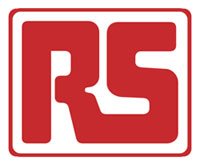
Through out the holidays the Uni of Adelaide team has been working hard to get all the items ready for the static test rig.

The ST development board kindly donated by ST along with other tools has been excellent to work with. It has offered an easy medium to develop & test software. Also lessons learned from the board will give invaluable insight into the development of our own STR7 based microcontroller boards.
The test stand load cell and pressure transducer have had there circuitry developed and built. Each apparatus has had simple tests to verify there functionality, with excellent results.
The real time data capture and wireless control systems are being continually developed. Currently the real time graphing we wish to use through the test fire is almost complete. Next the graphical control will have it output linked to the microcontroller.

Our nitrous components have arrived.
The nitrous oxide solenoids draw 8amps. Because of this and also the need to have a mechanical interlock, a control box was made to take a signal as input from the microcontroller. The box then outputs the function to the appropriate relay via a transistor switching arrangement, to cycle 3 solenoids ( 1 for NOX fill/ 1 for NOX purge / 1 for O2 flood ). The solenoids have been connected to the control box and tested successfully. Completed box is shown above.
An ignition test was completed to test how much time is needed for the ignition spark to take effect and to cause burning on the nylon hose. This nylon hose will hold the fuel and we are relying on it to burn to open the lines and allow the fuels to mix to produce a burn. To test a small section of nylon hose was taped to the ignition wire, it as placed in an oxygen rich beaker. As you can see in the movie it took very little time for it to burn. The shorter the sparks time the better as it reduces the EMC on small sensitive devices such as microcontrollers.
The team at University of Adelaide thank RS Components, Coregas & STMicroelectronics for thier generous support, of the A.S.L.I 2007 program.






No comments:
Post a Comment